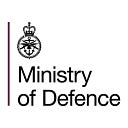Daesh’s demise: Op INHERENT RESOLVE
No strangers to the sprawling streets of Baghdad, for the last six years the UK Armed Forces have been passing on their skills and drills to the Iraqi forces
Daesh, or the so-called Islamic State, have wreaked havoc and chaos across the Middle East in recent years. Killing thousands and destroying landscapes, they left bodies and rubble in their wake. That is until the Global Coalition tackled their cult of tyranny, putting a stop to their advances.
Here in the UK we know all too well that if left unchecked, these kind or organisations can spill terror onto our streets that can affect us all. That’s why the UK Armed Forces work day and night overseas to tackle terror and help keep Britain safe.
The UK Armed Forces are no stranger to the sprawling streets of Baghdad, or the vast deserts of Iraq, but their latest mission in the Middle East has seen them work alongside 80 other nations to help provide safe and stable communities for the Iraqi people to live and work in.
Based around the country, for the last six years British troops have helped train over 120,000 Iraqi and Kurdish soldiers and are now in a position to hand over this training mission at one of their camps, to the Iraqi’s themselves.
Supporting Iraq from the UK: On average 13 Iraqi officers are trained in the UK each year:
- 17 Iraqi Officer Cadets have passed out at the Royal Military Academy Sandhurst, home to the British Army Officer.
- Five Iraqis have been trained at the Royal Naval College in Dartmouth
- Seven senior Iraqi officers have trained at the Defence Academy in the UK
- 57 other Iraqi officers have also trained in the UK on shorter courses such as the Intelligence Directors Course
Ranges, identifying Improvised Explosive Devices, and lessons on patrolling skills were all on the training program for the Iraqi soldiers, but arguably the British soldiers’ biggest contribution was the gift of training the trainers.
The successful delivery of training on the outskirts of Baghdad at Camp Taji saw British soldiers not only deliver skills and drills to individual Iraqi soldiers, but also mentor their military instructors too. These Iraqi instructors are now able to take the future of their soldiers’ training into their own hands, ensuring a self-sufficient and professional force — capable of taking the fight to Daesh.
The threat to the Coalition in Iraq is very real, with some positions coming under regular Indirect Fire (IDF) attacks. Earlier this year one such attack led to the tragic death of Lance Corporal Brodie Gillon, a reserve Combat Medical Technician. A stark reminder of the risks our servicemen and women take on every day.
The British army are handing over at Camp Taji, but are by no means leaving Iraq:
Daesh do retain an ability to conduct guerrilla-style attacks within Iraq and project ideological influence, which inspires attacks further afield. But thanks to the work of the Coalition, they hold no territory and their ability to wage full-scale war is significantly diminished.
While progress has been made, the UK remains fully committed to a peaceful Iraq and the lasting defeat of Daesh, and so over 100 UK military personnel remain there to support this goal, while the Royal Air Force continue their fight over the skies of Iraq and Syria.
